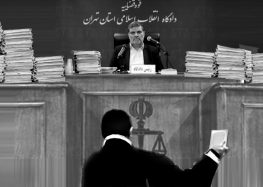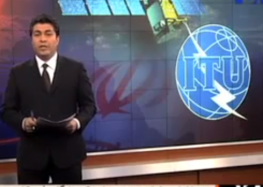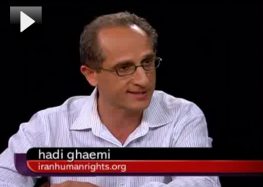No to Iran on the Human Rights Council!
By Ali Akbar Mousavi
Commentary
Friday, April 23, 2010
In a brazen move, considering Iran’s appalling record when it comes to systematic human rights violations, President Mahmoud Ahmadinejad’s government has asked to be considered this May for membership in the United National Human Rights Council. Most nations opposed the Islamic Republic’s first request for membership in 2006. Since then, the human rights situation in Iran has only worsened, catastrophically. Why would Iran make such a request?
As a former member of the Iranian Parliament, active in the area of prisoners’ rights for many years, and later as a civil society activist and political prisoner who witnessed and felt the consequences of the government’s illegal conduct directly, I can provide some insight.
The Ahmadinejad government’s treatment of social movements by students, laborers, women, teachers, ethnic and religious minorities, and political and civil organizations has exponentially worsened over the last four years. Activists’ demands for their rights and justice have led to arrests, mistreatment, abuses, and prosecution in substandard and illegal judicial proceedings, without regard for Iran’s laws or its international obligations. This has all been reported by the abused citizens and groups that have monitored the mistreatment.
Iranian students who voiced the slightest criticism have been imprisoned or barred from continuing their education, and many university professors have been dismissed or barred from teaching.
Political prisoners are still mistreated and some have even been tortured to death. Many are deprived of even the basic rights that Iranian laws stipulate for ordinary prisoners and dangerous criminals. Many face serious danger in prisons due to old age or illness.
Iranian women who demand equal rights have been accused of attempting to overthrow the Islamic Republic, and many of them face arrest and imprisonment as a result of criminal charges brought against them by the government.
Teachers and workers who establish or join labor syndicates and unions to try to improve their wages have been accused of rioting. Many are in prison, and an even larger number have lost their jobs, while their professional organizations have been banned.
Members of the Bahai faith have been persecuted and prosecuted. Even followers of Shiite Islam, Iran’s official religion, have not been safe. Several independent religious leaders and clerics, maraje’ (or sources of religious reference) have been restricted in their activities, and Gonabadi Sufi dervishes have been beaten and detained.
It has become commonplace for Iranian civil activists and artists to be barred from traveling abroad, without any legal or judicial reason being provided. Even the former president, Mohammad Khatami, was barred from traveling to a conference in Japan last week.
The government violates human rights with unfettered impunity. This includes the murders in the past year of innocent protesters. People who speak out about they abuse they have suffered are ignored. Warnings and reports by national and international human rights organizations have gone unheeded. In fact the Iranian government has attempted to avert criticism: In February, it submitted false statements in a report about its record to the Human Rights Council. The government has also shown a lack of will in promoting justice or confronting those who ordered and carried out orders to torture and rape prisoners – even though Parliament acknowledged the crimes.
Another abysmal note on Iran’s human rights record is capital punishment. Iran has the second-highest rate of executions worldwide and continues to execute those convicted of crimes committed when they were under the age of 18.
Iran also has one of the worst international records when it comes to banning publications and imprisoning journalists. The country has become the biggest prison for journalists who have not committed any crime other than reporting events. The sitting Cabinet now holds the worst record of banning publications and censoring the press.
These are only some examples that attest to the worsening situation of human rights in Iran, particularly in the aftermath of the 2009 presidential elections. The Iranian government has no justification to seek membership in the newly formed UN Human Rights Council. It clearly is seeking membership in a blatant effort to deflect attention away from its actions, and to escape being held accountable to the Iranian people for its abuses.
Electing this Iranian government to the Human Rights Council after its brutal crackdown since the presidential elections would be a complete mockery of those who have suffered at its hands. I refer to the families who lost loved ones during the protests; to the victims of torture and rape; and to all those whose rights have been violated, particularly the millions of people who have participated in protests during the past few months to object to this very same government.
The international community, especially the Islamic countries, should refuse to acknowledge Iran’s request. Instead, they should work to limit the reach of this government that continues to violate the rights of its own people in the name of Islam.
Ali Akbar Mousavi was a member of the Iranian Parliament during the period 2000-2004 and is a prominent human rights defender.
http://www.dailystar.com.lb/article.asp?edition_id=10&categ_id=5&article_id=114103#axzz0lwJDjL2c




